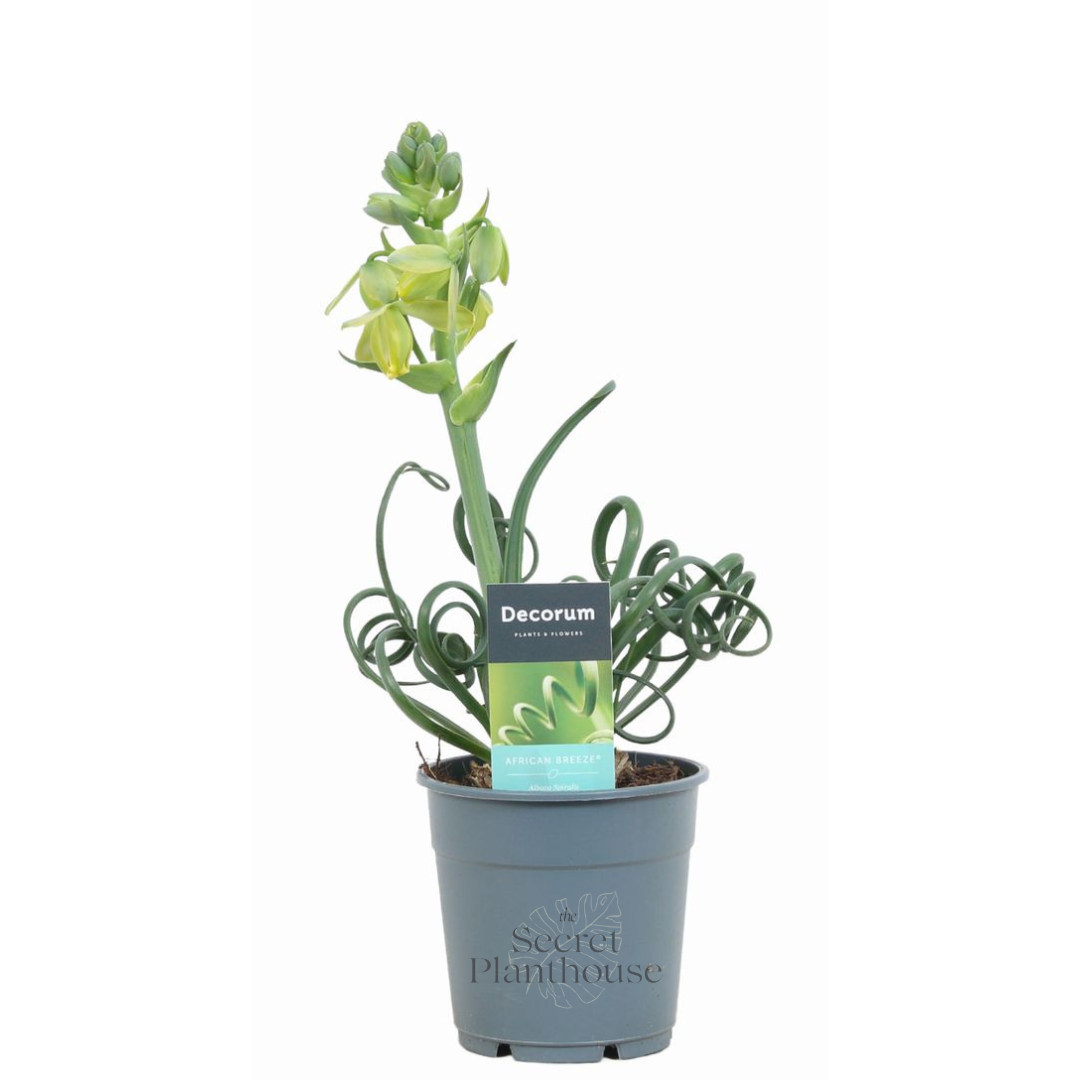The Secret PlantHouse
Albuca spiralis Frizzle Sizzle
Albuca spiralis Frizzle Sizzle
Couldn't load pickup availability
Curly, quirky, and full of character – nature’s botanical spring.
Native to the semi-arid regions of South Africa, Albuca spiralis ‘Frizzle Sizzle’ is a wonderfully unusual bulbous plant belonging to the asparagus family. Its most iconic feature? The tightly coiled, corkscrew leaves that sprout upright in a wild, whimsical swirl – like a botanical party popper. In its natural habitat, it thrives in well-drained, rocky soils and enjoys seasonal rainfall followed by dry rest periods.
Come spring, it may also reward you with yellow, vanilla-scented flowers on tall stalks – but it’s the foliage that really steals the show.
Care Guide
‘Frizzle Sizzle’ is low maintenance, drought-tolerant, and full of personality:
-
Light: Loves bright light and even some direct sun. A sunny windowsill is ideal to help the leaves curl tightly.
-
Watering: Water sparingly during its growing season (autumn to spring). Let the soil dry out between waterings.
-
Dormancy: In summer, the plant may go dormant and lose its leaves – reduce watering significantly during this time. Resume watering when new growth appears.
-
Humidity: Not fussy – average home humidity is fine.
-
Temperature: Prefers warmth – 16–24°C. Protect from frost and freezing temperatures.
-
Feeding: Lightly feed every 4–6 weeks during active growth with a diluted, balanced fertiliser.
-
Soil: Use a gritty, free-draining mix – cactus or succulent compost is perfect. Good drainage is essential to avoid bulb rot.
Best Placement in the Home
Perfect for a sunny windowsill, kitchen shelf, or conservatory where it gets direct light. Its compact size and sculptural leaves make it ideal for desks, small spaces, and gifts.
Rarity & Ease
Still relatively uncommon, especially in full curl, Albuca ‘Frizzle Sizzle’ is a very easy-care plant that brings fun to any collection. It’s great for beginners and experienced plant lovers alike – a botanical conversation starter that thrives on neglect.
Share


